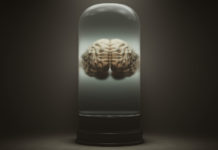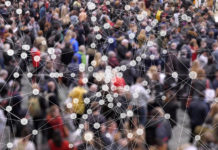Tag: depression
Life really is beautiful
Graeme Frauenfelder, 56, didn’t realise until he was an adult that he was the victim of a mental health problem that affects 1.8 per cent of Australian males and 1.7 per cent of females. He’d assumed that his feelings were typical of any kid. But Graeme’s problem has a name. It’s bipolar disorder, which used to be called manic depression. Bipolar disorder is characterised by ecstatic highs and dark lows. Graeme has been hospitalised a number of times because of it. Fortunately, he’s now able to better manage it.
A generation that breathes anxiety
“You are always afraid people will judge you or know your weakness. It’s like being totally naked in front of a huge crowd,” says Bruno Feldeisen about the hidden struggle he had with anxiety.
The hopeless generation
I talked to Pastor Nicu Butoi about the role that religion could play in treating depression and hopelessness, at the end of a series of evangelistic presentations he gave to a full-house before the pandemic.
What is the purpose of my life on Earth?
The unverified stories of children dying, due to severe emotional and sensorial deprivation, despite being fed and medically cared for, spread the theory that one can die because of lack of love, although being well taken care of. However, if we look more closely at the historical and personal human experience, we find that it is not necessarily the lack of love that kills, but rather the lack of meaning, or purpose.
A mind at war in peacetime
When you discover that the only thing you have left is faith in God, you fervently wish that your faith doesn't end up poisoning your soul.
More than a brain in a jar
Michael Paterniti is the man who crossed America in 1997, carrying a jar containing Albert Einstein's brain in the trunk of a rented Buick. This journalist is not the only man who can brag about this memory, because riding shotgun was Thomas Harvey, the pathologist who had stolen the brain of the great physicist, in the hope that he would be able to understand his mind.
Depression, the silent killer
In 2020, depression became the second leading cause of global morbidity and it is projected to be the first in 2030,[1] according to a forecast by the World Health Organization (WHO).
What not to say to a person suffering from depression
Your friend, who is suffering from depression, needs you. What should you tell them in such moments, and what should you not? No matter how well-intended they are, your words can become emotional weapons, whether you like it or not.
Holidays when you’re not feeling good
The December days that start with the number 2—that is, starting from the 20th—are like a train with batteries on a closed circuit. They pass, with the twinkle of LEDs, like carriages loaded with emotions about the past, about the future and about the present, with nostalgia and regret, with delight, and with fear and worry: a mixture that we enjoy with the thought that this must be the bittersweet taste of life.
What is depression, and why should it be treated?
Imagine yourself entering a shopping mall with your sunglasses on. Even though the lights are shining brightly, you cannot see them. Everything around you is dark and cold. But as soon as you remove your glasses, the world comes alive: the windows of the shops shine attractively, you see the brightly-coloured clothes, and the dazzling screen of the phone blinks with an incoming message.
How to really help someone suffering from depression
When confronted with someone else’s strong emotions—intense joy or heartbreaking pain—we often do not know how to react. In the case of joy, the other person usually doesn't mind, because his feelings console him. But in the case of pain, things are completely different. Misunderstood suffering can make the sufferer isolate himself from the very people who could help him. So, how can we really help someone who is suffering?
Depression, a disease of civilisation
Five decades ago, when the World Organization for Social Psychiatry was established, many thought it was a joke. Others, being more analytical, tried to prove that mental illness can only be an individual experience; that the problem always exists only in an individual and never in a group.
#SELFCARE for Christians
The concept of self care—defined as the entirety of ways in which a person understands how to solve their emotional problems and manage their anxieties—has become a real movement in the past two years with an entire industry ready to make our lives easier and more comfortable. For Christians, however, this trend has proven to be quite problematic: making our lives easier is in conflict with the biblical instruction to carry our cross every day. But the need to somehow manage stress and anxiety is real.
How lethal is COVID-19, and other (un)answered questions
There have now been over 12 million cases of COVID-19 infection globally, and half a million deaths. Researchers are constantly looking for new and better information to reduce the uncertainty around the virus.
What about the failures that haunt us?
A smooth sea never gave a skilled sailor, said Franklin D. Roosevelt, suggesting that without hardship, challenges and even failures, we cannot become our best selves.


























